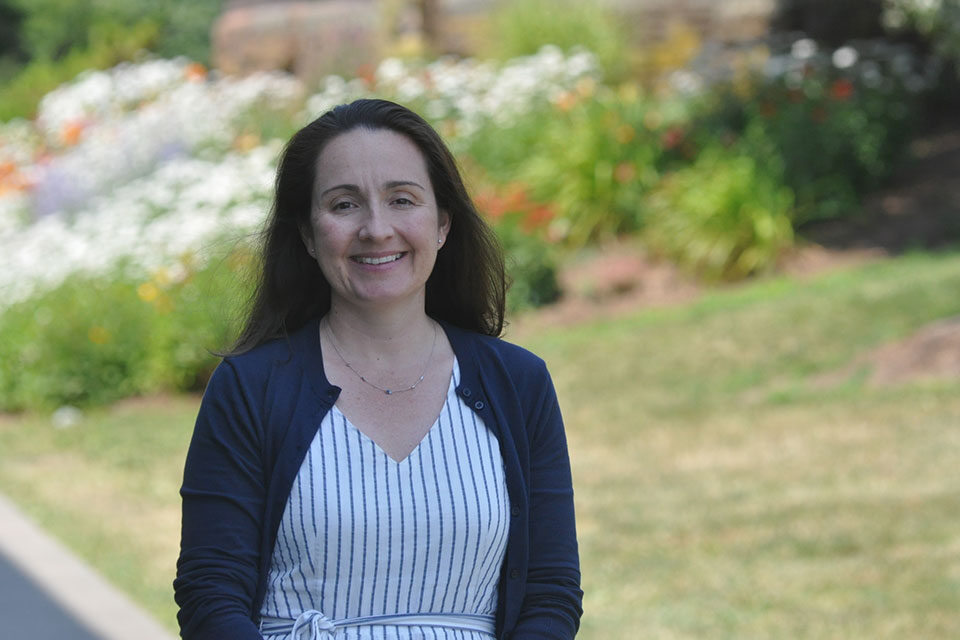Dr. Elizabeth Fitzgibbon named associate dean of undergraduate studies

Dr. Elizabeth Fitzgibbon, associate professor of in the Department of Mathematical Sciences, has taken on additional responsibilities in faculty development and academic leadership with her appointment as associate dean of undergraduate studies.
In her new role, Fitzgibbon will serve as a resource for faculty, supporting their efforts to craft an exceptional academic experience for undergraduate students in accordance with the vision of Salve’s Strategic Compass. She will provide leadership in curricula development and assessment and will also represent undergraduate studies in further developing collaborations with offices across campus.
“I’m excited by this opportunity to support my faculty colleagues as they work to maintain the highest quality undergraduate academic programs aligned to Salve’s mercy mission and meeting the needs of today’s students,” Fitzgibbon said. “I look forward to continued collaborations with our partners across campus, including Institutional Research and Effectiveness, the Center for Teaching and Learning, Information Technology, Student Affairs and the Registrar.”
During her eight years at Salve Regina, Fitzgibbon has taken on leadership responsibilities among faculty, serving as chair of the Curriculum Committee and the Faculty Executive Committee and serving on the Assessment Advisory Board. She has worked closely over the last two years with Dr. Steve Rodenborn, dean of undergraduate studies, on faculty development projects through the Center for Teaching and Learning – including partnering with Information Technology on Canvas training and to assess instructional technology needs.
“Liz is an inspiring teacher and respected scholar deeply grounded in the mission that makes Salve unique,” Rodenborn said. “In her new role as associate dean, her leadership and innovative vision will be invaluable as we continue to advance our distinctive undergraduate academic experience.”
Fitzgibbon said faculty are always appreciative of the support she can provide to help them achieve their goals, whether it is navigating the curriculum approval process or advising on which University departments and offices should be looped in on proposals. She said the process always begins and ends with student learning outcomes.
“What do we want our students to accomplish in their time here at Salve?” she said. “Are the students meeting those outcomes – and if they’re not, what might we do differently that would help improve their success? That really is the focal point. The end result is that we’re going to have programs that are as good as they possibly can be.”

